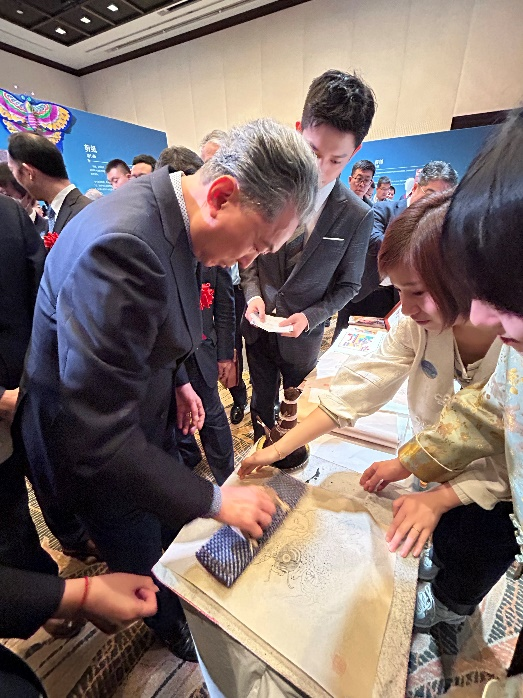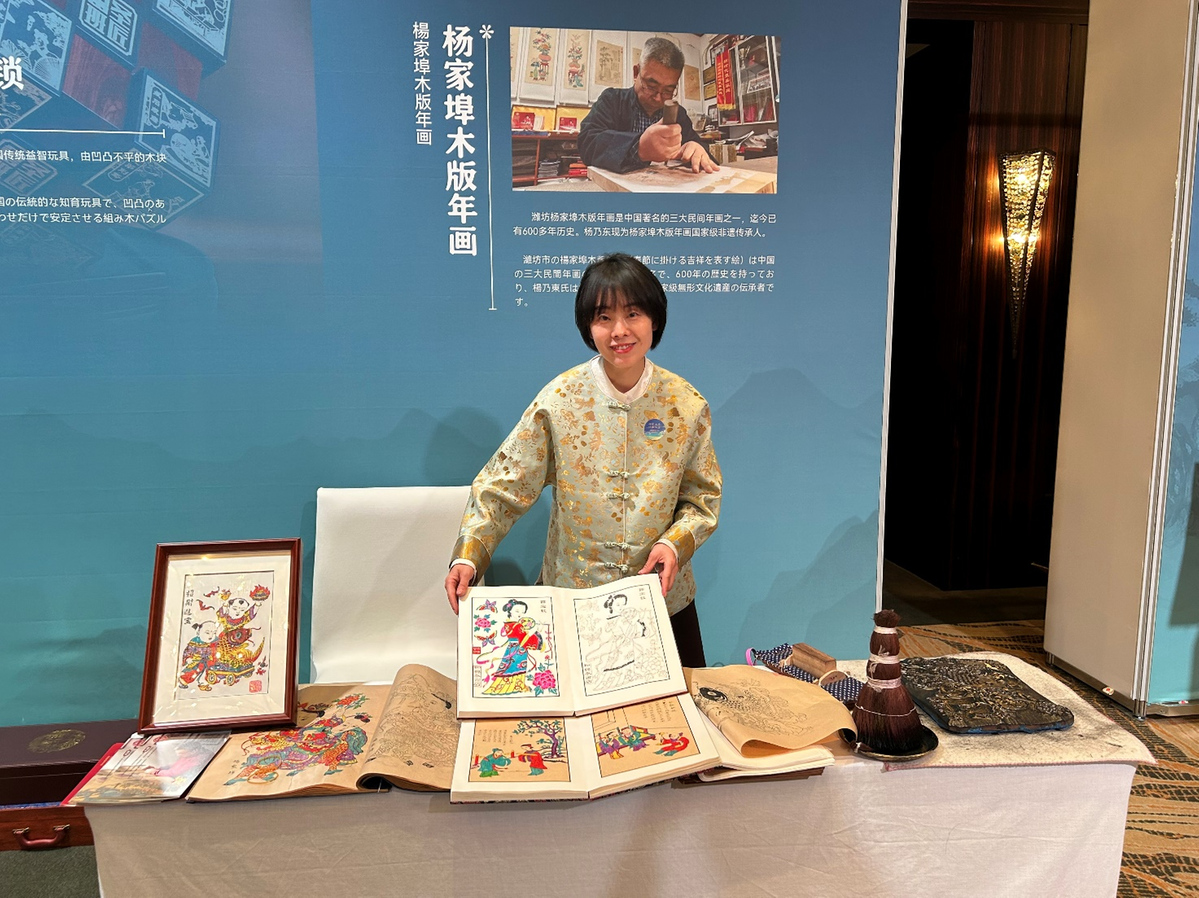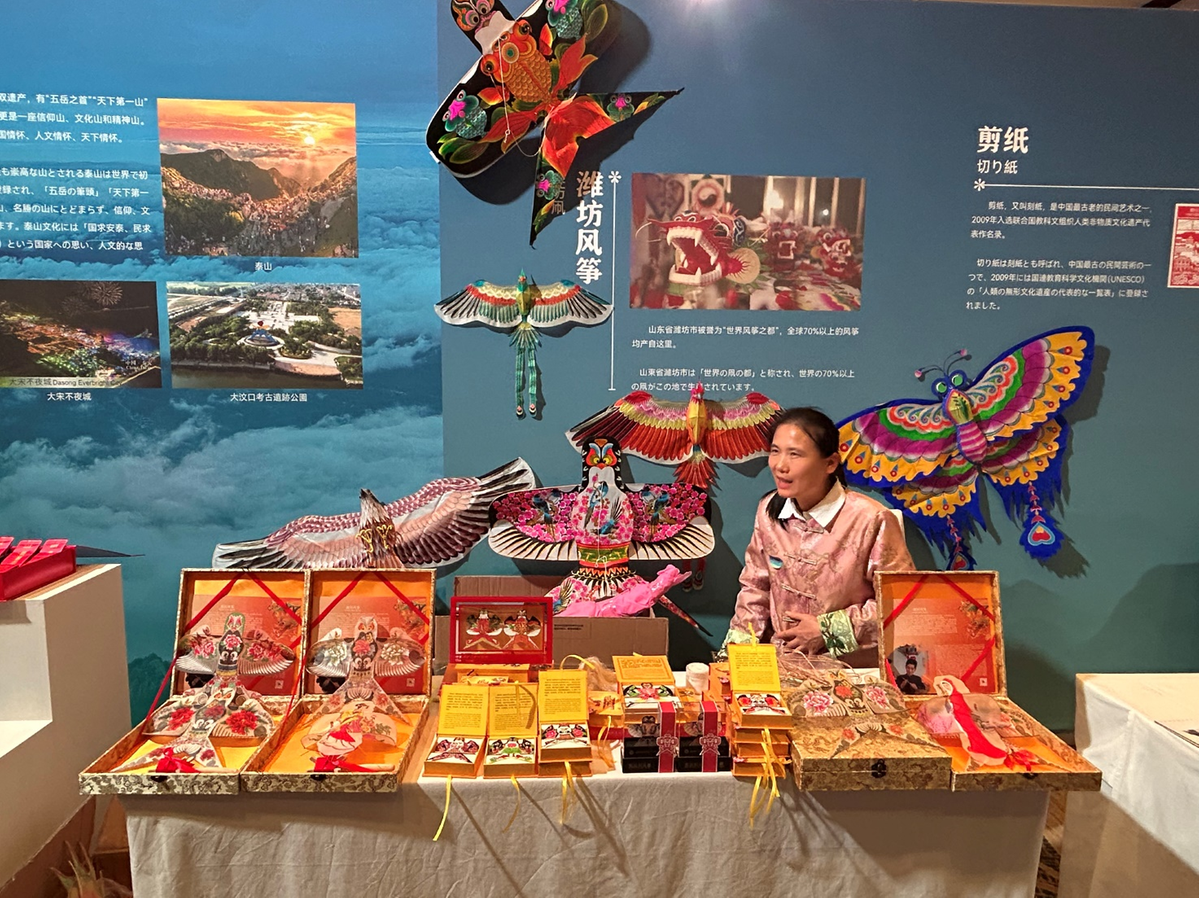Japanese savor produce and culture of Shandong province
By Jiang Xueqing in Tokyo | chinadaily.com.cn | Updated: 2024-04-18 22:25

For former Japanese prime minister Yukio Hatoyama, more agricultural products from Shandong province of China will further enrich the dining tables of the Japanese people.
Japan is the largest export market for agricultural products from Shandong province of China. At a promotional event in Tokyo on Thursday, Hatoyama expressed his fondness for Shandong, which has many industrial products, agricultural products, and seafood.
Representatives of Shandong are inviting people from around the world, including Japan, to explore traditional culture, enjoy the magnificent scenery, and experience diverse folk customs.
Bai Yugang, a member of the Standing Committee of the Communist Party of China Shandong Provincial Committee and head of the publicity department of the CPC Shandong Provincial Committee, said Shandong has extensive exchanges with Japan, with close cooperation in various fields such as economy, education, environmental protection, culture, tourism, sports, and talent development. He proposed several initiatives for deepening future exchange and cooperation:
First, further strengthen economic cooperation by utilizing various mechanisms, encouraging interested businesses to invest in each other's territories.

Second, further promote cultural synergy and innovation by exploring the establishment of a new cultural business development alliance and enhancing cooperation in fields like film, animation, gaming, and digital culture.
Third, further deepen exchanges and mutual learning of civilizations, with Confucian culture as the bond, supporting academic institutions and higher education institutions to conduct regular dialogues.
Fourth, further broaden two-way tourism interaction by promoting joint development of quality routes by tourism departments, organizing characteristic experience activities such as rural tours and folk customs tours, and smoothing channels for mutual visits by tourists.
Fifth, further activate youth study visits by encouraging cooperation between primary, secondary, and tertiary schools, organizing youth groups to conduct study exchanges, and promoting the continuity of China-Japan friendship in the next generation.
Last year, Chinese President Xi Jinping met Japanese Prime Minister Fumio Kishida in San Francisco, reaffirming the positioning of comprehensively advancing the strategic and mutually beneficial relations between China and Japan.
However, during his recent speech at the US Congress, Kishida called China's stance "the greatest strategic challenge" to the peace and security of Japan.
"This kind of statement is undesirable, and the strategic and mutually beneficial relationship should be emphasized more," said Hatoyama.
Maintaining the long-term healthy and stable development of China-Japan relations is in the fundamental interests of the two peoples and conducive to regional peace and stability, said Yang Yu, minister-counselor of the Chinese Embassy in Japan.

The leaders of China and Japan reaffirmed the the positioning of comprehensively advancing the strategic and mutually beneficial relations between the two countries and agreed to dedicate themselves to jointly building a constructive and stable China-Japan relationship that meets the demands of the new era.
It is hoped that both sides will take the important consensus of the two countries' leaders as a guide, grasp the correct direction, deepen pragmatic cooperation, properly handle differences and disputes, and promote the stable and far-reaching development of China-Japan relations, Yang said.
During the promotional event, Shandong province displayed traditional cultural heritage, innovation in intangible cultural heritage, and the achievements of green, low-carbon, and high-quality development through pictures, videos, and physical objects. A total of more than 60 categories and nearly 1,000 products were exhibited on-site.
jiangxueqing@chinadaily.com.cn
























